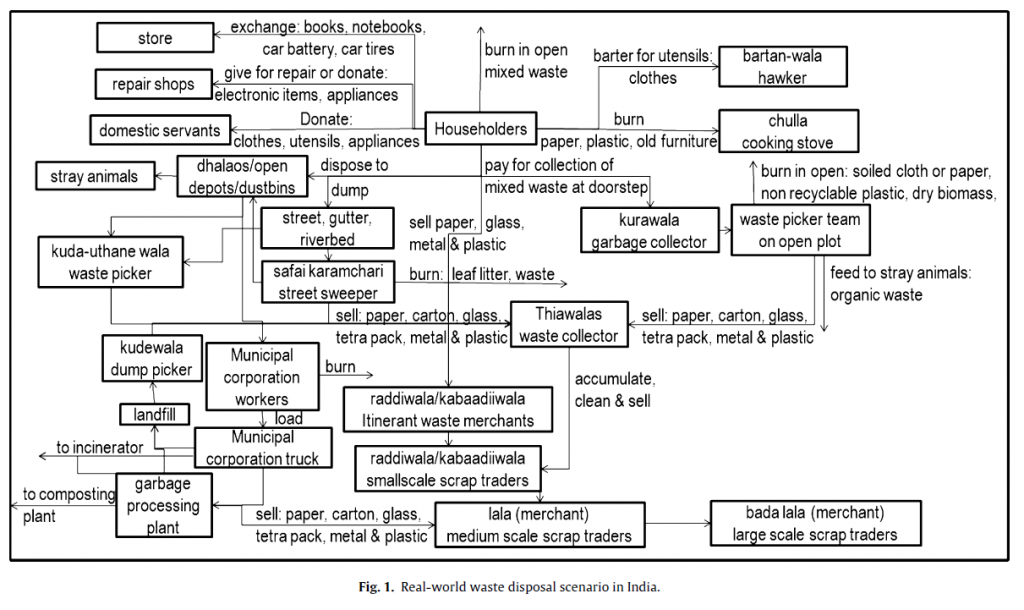The plastic that ends on the streets is easily fixed, at least, here in the Netherlands. There are many trashcans in public spaces (somehow always one to little) and every house and office has places to dispose of your waste. In the Netherlands waste management is quite a formal sector, everything is organized and taken care of, like the video I showed in the first blog. What I also mentioned in the first blog is that most of the plastic that enters the oceans comes from low- to middle-income countries, basically because their waste management is not that developed.

In many countries around the world, waste management is not the first priority and thus sometimes neglected. This leads to situations like these in the Maldives, where the line between a beautiful blue ocean and a giant trash pile is just a few meters…
At places like these often the informal sector thrives. People set up small businesses to collect a specific material and process this to be able to sell it again. This often starts with metal, glass, and paper and gets more advanced with plastics and electronics. Like for example this video where a kabaadiiwala makes his round in the neighborhood.
Nandy and others did an interesting study in 2015 on waste management in India. They even made this flowchart of consumer waste and the people involved in recycling!

It is at these places, at the informal frontlines of plastic recycling, where the plastic scanner shines.

The informal sector often collects mixed plastics and needs to sort this by hand. Over time they get a feel for the different types of plastics, but this can still go wrong and only a limited amount of plastic products is recognized based on the shape or feel of the product. A low-cost scanner that can be built locally and that recognizes more than three-quarters of the plastic products is an absolute no brainer!
In 2019 I set up a plastic recycling workspace in the Maldives and experienced informal recycling first hand, this already showed some great insights, apart from that I have interviewed plastic collectors, plastic recyclers, and DIY makers around the world to benchmark their needs, their wishes, and their skills to be able to build and use a plastic scanner. With their input, I will be building a plastic scanner that suits a variety of contexts and that can easily be replicated.
Love, Jerry✌
Take a deep dive:
If you liked this blog and you want to read more, here are three links to some great online content!
Trailer of the movie Plastic China
The paper from Nandy and others on: Recovery of consumer waste in India – A mass flow analysis for paper, plastic and glass and the contribution of households and the informal sector
Video on building a plastic recycling workspace in the Maldives
